2020 Edition
Click here to see other editions of the event.

Microservices, Cloud, Serverless, Kubernetes, Architecture, Java, JS
Montreal’s Less Than* FREE 1-day Software Conference
For students & developers – Friday, January 10, 2020
*Supported by 
Everyone who attends will receive a 40 % discount code good for all Manning products in all formats.
Five eBook copies of Mannings’ Core Kubernetes by Chris Love and Jay Vyas will be raffled at the end of the conference.
Registration is now open at Eventbrite
https://www.eventbrite.com/e/dawscon-software-conference-tickets-71925935409
We are looking for sponsors for DawsCon 2020. To learn more and hopefully sign on email us at dawscon@dawsoncollege.qc.ca for how you can be involved in DawsCon.
DAWSCON at Dawson College on January 10, 2020 from 8:30 AM till 5:00 PM
Dawson College will again be hosting its free one-day software conference in Montreal. This conference is bringing speakers from Canada, the US, the UK, Colombia and Montreal to speak to students and developers on a wide range of topics concerning software development. You chose to be a programmer and one of the commitments this entails is to lifelong learning. DAWSCON is the ideal place to start or continue!
The event is free to attend and targeted at students, professional software developers and anyone with a general curiosity.
You can look forward to:
- Demo-oriented sessions, with as few slides as possible. Lots of code!
- Many useful takeaways and practical tips and tricks.
- Sessions for desktop, server and beyond using Java and non-Java languages.
- Lots of opportunities to speak to fellow developers and users.
DAWSCON, au College Dawson, le 10 janvier 2020, de 8h30 a 17h00.
Le collège sera à nouveau l’hôte de sa conférence gratuite à Montréal ; elle s’appelait NetBeans Day, et maintenant a pour nom DAWSCON. Elle permettra d’entendre des présentateurs des USA, d’Europe et de Montréal partager leur vue du développement logiciel, et de ses multiples aspects. Vous êtes un programmeur, et vous apprenez tous les jours ? Alors cette conférence est faite pour vous !
Cet événement est gratuit et nous invitons les étudiants, les développeurs de logiciel, et tous ceux qui sont curieux.
Attendez-vous a :
- Des sessions d’exemples : pas, ou presque de ‘diapos’
- Des tonnes de recettes, de solutions pratiques
- Des sessions pour serveurs, pour ordinateur, en Java, ou d’autres langages
- Des rencontres avec des développeurs, des étudiants
Registration / Inscription
Please register at the following link:
https://www.eventbrite.com/e/dawscon-software-conference-tickets-71925935409
Sessions / Schedule
8:00 Registration
- Registration in the Cafeteria 3C.1
- Time: 8:00 and all day
8:30 Welcome Address
- With Ken Fogel
- Time: 8:30
- Room: Cafeteria 3C.1
8:45 Rediscovering Javascript: Exploring the Modern JavaScript Features
- With Venkat Subramaniam
- Time: 8:45
- Room: Cafeteria 3C.1
Based on the book with the same title as this talk, this presentation will explore the modern features of JavaScript that make this a pleasant language to use. Come to this presentation to get a quick jumpstart on the elegant capabilities from passing arguments, to creating iterators, to destructuring, and more features of using ES 6 and beyond.
10:00 Running Spring Boot Microservices in the Cloud
- With Julien Dubois
- Time: 10:00
- Room: Cafeteria 3C.1
Spring Boot microservices provide so many options that it can be challenging to run them correctly in the cloud. Leveraging the hundreds of projects using JHipster in production, we’ll see how many people successfully achieve a cloud-native architecture, including the common tools and patterns that they use. We’ll see what needs to be configured and set up, and explain how a major cloud provider like Azure can help you go faster, and reduce your cost and time-to-market.
10:00 Java Modularization
- With Ryan Cuprak
- Time: 10:00
- Room: Amphitheatre 4C.1
The Java platform now natively supports modularization. This session will provide an update on tooling and go into depth on using services and module layers. Best practices for project structure, publishing modules to a repository, and testing modular applications will be covered.
10:00 Deploying Java Applications with Kubernetes
- With Hillmer Chona
- Time: 10:00
- Room: Conrods 2F.1
There are several Java technologies that can be used to create microservices, regardless of which one is chosen, the most effective way to deploy them could be a containerized environment. Containerization helps to package applications to be released and updated several times a day in an easy and fast way. This demo-driven session shows how a microservice can be developed with Java Technologies, packaged with containerization techniques and deploy on a Kubernetes Engine.
11:15 Serverless Java Challenges and Triumphs
- With David Delabassée
- Time: 11:15
- Room: Cafeteria 3C.1
Serverless Functions are hot, developer and corporate interest are exploding! But let’s face it, although Java is one of the most popular programming languages in the world it isn’t the most popular language for writing functions—at least not yet. According to James Governor, “When Web Companies Grow Up They Turn into Java shops” so as functions become mainstream will Java become the dominant language for authoring functions? Can it be?
In this hands-on session, we will examine the challenges of using Java for Serverless functions and the latest features provided by the Java platform that address them. We will also dig into the open source Fn project’s unparalleled Java support (including Kotlin) which makes it possible to build, test, and scale out Java-based functions applications.
11:15 The Future of Java and You
- With Heather VanCura
- Time: 11:15
- Room: Amphitheatre 4C.1
This session will explore how Java development has been brought into the open over the past decade. Several Java developer efforts have brought open source development processes and new levels of transparency and participation into their communities.
The Java Community Process (JCP) program celebrated twenty years of Java standards development in 2019.
Learn about the latest Java innovations to the Java SE Platform – Java SE 11, 12, 13 and beyond.
Since the initiation of efforts to expand the developer participation in the Java community, Java standards development is more open that it ever has been.
Learn how to take part in the Java developer community and the upcoming changes to Java – you can participate as an individual, corporation, or nonprofit such as a Java user group (JUG).
This session answers questions about why and how to participate in the evolution of the Java platform. You will also learn about the global Adoption programs and how you can participate in contributing to the future of Java.
11:15 Java Garbage Collection – The Basics
- With Chandra Guntur
- Time: 11:15
- Room: Conrods 2F.1
Modern Java has a collection of sophisticated Garbage Collection patterns and models.
This session will provide an overview of how basic Garbage Collection patterns and models work in Java. The presentation material includes various Regional Collector JVM options and flags for tuning GC behavior as well as new logging techniques using Java Unified Logging.
Details will be shared about the new garbage collectors being introduced since Java 10, covering Shenandoah, ZGC and Epsilon.
12:15 Lunch Time
- Time: 12:15 – 13:00
Bring a lunch or visit the food court across the street from the college i the Alexis Nihon Plaza shopping mall. You can access the mall underground through the subway entrance to the college. No need to go outside.
13:00 Feed your head: Explore the JVM’s outer planets beyond Java
- With Ian Darwin
- Time: 13:00
- Room: Cafeteria 3C.1
Java is many developers’ first language, and thus their first choice. Just as a carpenter doesn’t stop after learning to hammer nails, you shouldn’t stop learning after one language. This talk will examine and demonstrate several languages that either compile to the JVM, run in the JVM, or compile to Java-like environments. We will cover Kotlin, JShell, Groovy, Python, some flavor of R, and maybe Scala or Clojure and maybe JavaFX on Mobile and/or Dart/Flutter, depending on time and attendee interest. The goal is not to teach these to a working level but to whet your appetite and get you interested in one (or more) of these “stretch goal” languages.
13:00 A whistle stop tour on how to write, edit, learn and hack code in the Apache NetBeans IDE
- With Mark Stephens
- Time: 13:00
- Room: Amphitheatre 4C.1
If you want to write, edit, debug, test and ship high quality code (fast), in Java and other languages then the Apache NetBeans IDE should be on your desktop. In this whistle stop tour using NetBeans itself we will cover all these areas of software development in NetBeans and its excellent support for multiple Versioning systems. I will showcase how we use it to develop our high-end commercial Java software libraries. I will show you how to configure, customise and extend NetBeans. And don’t get me started on its awesome Maven and Ant support….
If you want to learn to code, you will find out how the built-in examples and hints and tools make it an ideal platform to develop your technical skills fast.
And, if you are looking for an Open Source project to learn git and improve your coding skills, the entire source code for NetBeans is on GitHub. So I will finish by showing how you can download and hack the IDE itself in the IDE.
And I will still find time for some kitten pictures, my dry English humour and slip in some obscure facts from my Mediaeval History degree…
13:00 This stupid multi-thread code isn’t working. I hate Java!
- With Henri Tremblay
- Time: 13:00
- Room: Conrods 2F.1
Let me step in here. Java is probably the most deterministic language ever.
But reading the Java Memory Model specification is not like reading Harry Potter and the Philosopher’s Stone. It’s not even like reading War and Peace (it is shorter though).
Fortunately, I have a trick. Let’s have a look together.
14:15 Game of Streams: How to Tame & Get the Most from your Messaging Platforms
- With Mark Heckler
- Time: 14:15
- Room: Cafeteria 4C.1
Most mission-critical systems have distributed elements or are entirely distributed, resulting in a number of challenges: performance, scalability, reliability, resilience…the eight fallacies of distributed computing are alive and well!
Messaging platforms are often used to solve these problems and increase the “ilities”, but they don’t come without a few complexities of their own. Come to this session to learn not only how to use open source solutions like Spring Cloud Stream, RabbitMQ, & Apache Kafka to maximize your distributed systems’ capabilities while minimizing complexity…but also how to really use them! There be dragons when dealing with messaging platforms; the presenter will show you several ways to tame and harness them for maximum fire, maximum altitude. All examples will be coded live & in real-time!
14:15 The Trouble with Memory
- With Kirk Pepperdine
- Time: 14:15
- Room: Amphitheatre 4C.1
When developers and operations are asked; what is the biggest performance bottleneck you face on a regular basis, it’s rare that memory inefficiency comes up as an answer and yet our observations suggest that 60% of all application do suffer from this problem. Further more, we see this problem in all versions of Java, Scala, Ruby, Kotlin, Clojure, Groovy, etc. We’ve also seen it in C# running on the CLR, on Android devices, in the cloud, on bare metal systems, just about every where we’ve looked. There are many reasons why this bottleneck is being overlooked. Quite often this memory inefficiency hides itself as lower application throughput and longer more frequent tail latency events meaning very often, other things take the blame. In this session we’ll look at the tell tale signs that your JVM based application is in that 60% and demo steps you can take with your Java application to attack this problem.
15:30 Quantum Party Tricks: An entertaining introduction to quantum computing
- With James Weaver
- Time: 15:30
- Room: Cafeteria 3C.1
Although quantum computing concepts can seem strange and difficult to learn, many of them are easy to understand in the context of simple demonstrations. For example, a quantum bit (qubit) may hold the value of 0 or 1, or some combination of those values. When measured, the state of the qubit collapses to either 0 or 1, based upon the probabilities expressed in its hidden quantum state. A simple demonstration, or “quantum party trick” if you will, can shed light on this phenomenon as well as how it is leveraged in quantum computing.
In this session, James Weaver will give an entertaining introduction to quantum computing, After covering a brief history of quantum computers, James will demonstrate key concepts in quantum computing using several party tricks disguised as programs running on a quantum computer. By the end of this session, attendees will have been exposed to concepts and tools that enable them to develop programs that run on quantum computers.
Part of this session will consists of demonstrations using a block-mining application similar to Minecraft. Attendees may choose to download this game and play along before, during, and after the session by following the instructions at QiskitBlocks.org
Something Special This Year
Students from two Montreal area public high schools, Lindsay Place and Royal West Academy, will be attending DawsCon. In the morning they will have sessions tailored just for them in two of Dawson’s computer labs with James Weaver and Mark Stephens. After lunch they will attend a regular conference session before returning to their schools. These students may one day be your colleagues so say hello and demonstrate how inclusive software developers are.
Speakers / Conférenciers
Venkat Subramaniam
President, Agile Developer, Inc., Java Champion, JavaOne Rockstar
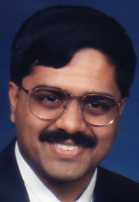 Dr. Venkat Subramaniam is an award-winning author, founder of Agile Developer, Inc., creator of agilelearner.com, and an instructional professor at the University of Houston. He has trained and mentored thousands of software developers in the US, Canada, Europe, and Asia, and is a regularly-invited speaker at several international conferences. Venkat helps his clients effectively apply and succeed with sustainable agile practices on their software projects. Venkat is a (co)author of multiple technical books, including the 2007 Jolt Productivity award winning book Practices of an Agile Developer. You can find a list of his books at agiledeveloper.com.
Dr. Venkat Subramaniam is an award-winning author, founder of Agile Developer, Inc., creator of agilelearner.com, and an instructional professor at the University of Houston. He has trained and mentored thousands of software developers in the US, Canada, Europe, and Asia, and is a regularly-invited speaker at several international conferences. Venkat helps his clients effectively apply and succeed with sustainable agile practices on their software projects. Venkat is a (co)author of multiple technical books, including the 2007 Jolt Productivity award winning book Practices of an Agile Developer. You can find a list of his books at agiledeveloper.com.
Henri Tremblay
Java Champion
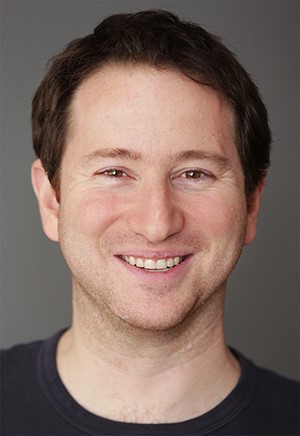
Henri Tremblay est Java Champion. Il dirige les projets à sources ouvertes EasyMock et Objenesis. Quand il était jeune, il a développé le mocking des classes et inventé le concept de mocking partiel. Il codait avec pragmatisme.
Il a depuis été développeur, directeur technique, architecte d’entreprise, créateur d’entreprise, conférencier et expert en performance. Avec pragmatisme.
Il aime l’optimisation et la productivité. En Java et en général. Il essaie d’être utile. Il est actuellement directeur de TradingScreen Canada. Il est pragmatique.
Henri Tremblay is a Java Champion. He leads the EasyMock and Objenesis open source projects. When he was young he created the popular mocking class, invented partial mocking and was coding with pragmatism.
He has been a developer, CTO, software architect, enterprise architect, startup founder, teacher and performance expert. With pragmatism.
He loves optimization and productivity. In Java and in general he tries to be useful. He is currently the Head of Office of TradingScreen Canada. He is pragmatic.
Julien Dubois
Cloud Developer Advocate at Microsoft and Java Champion

Julien is known as the creator and lead developer of the JHipster project. In the past 20 years, he has mainly worked with the Java and Spring technologies as an architect and as a consultant, working for many different customers across all industries. As he loves to share his passion, Julien wrote a book on the Spring Framework, spoke at more than 100 international conferences, and created several popular Open Source projects.
Currently, Julien focuses on improving Java and Spring support on Azure.
James Weaver
Quantum Developer Advocate IBM, Java Champion, JavaOne Rockstar

James Weaver is a developer, author, and speaker with a passion for quantum computing. He is a Java Champion, and a JavaOne Rockstar. James has written books including Inside Java, Beginning J2EE, the Pro JavaFX series, and Java with Raspberry Pi. As an IBM Quantum Developer Advocate, James speaks internationally at quantum and classical computing conferences. He tweets as @JavaFXpert, and blogs at http://JavaFXpert.com and http://CulturedEar.com
Mark Stephens
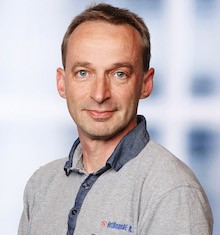
Mark Stephens is a Java enthusiast and keen NetBeans user who regularly speaks at Oracle CodeOne, DevFest and NetBeans events. He organises a NetBeans UK conference.
Mark is the Founder of IDRsolutions, a UK based software Company whose products include a Java PDF Viewer, a PDF to HTML5/SVG converter and a complete replacement for ImageIO.
Mark is very proud to have an MA Degree in Mediaeval History for which he has yet to find any practical use.
Mark Heckler
Java Champion
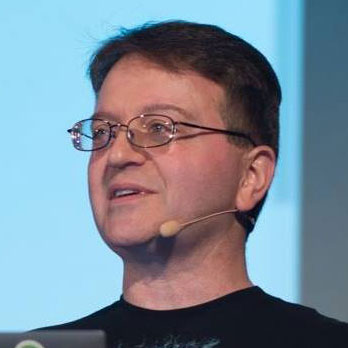
Mark Heckler is a Java Champion, published author, conference speaker, and Spring Developer & Advocate for Pivotal developing innovative production-ready software at velocity for the Cloud and IoT applications. He has worked with key players in the manufacturing, retail, medical, scientific, telecom, & financial industries and various public sector organizations to develop & deliver critical capabilities on time and on budget. Mark is an OSS contributor and author/curator of a developer-focused blog (https://www.thehecklers.com) & an occasionally interesting Twitter account (@mkheck).
Chandra Guntur
Java Champion

Chandra Guntur is a Director and Java Advocate in Resilient Systems Engineering, BNY Mellon. He has been a technologist in the financial services industry since 2003 and is programming with Java since 1998. Chandra is one of the representatives for BNY Mellon in the Java Community Process (JCP) Executive Committee. He is a Java User Group (JUG) Leader, and helps run one of the largest Java user groups, NYJavaSIG (New York Java Special Interest Group). He is also responsible for running the NYJavaSIG Hands-On-Workshops (HOW), conducting code workshops and Code Katas on core Java features. Chandra is a frequent speaker at Java meetups, user groups, and key conferences including Oracle Code One, Oracle Code NY, QCon New York, Devnexus and GIDS India.
Twitter: @CGuntur
Linkedin: https://www.linkedin.com/in/cguntur
Hillmer Chona
Java Champion
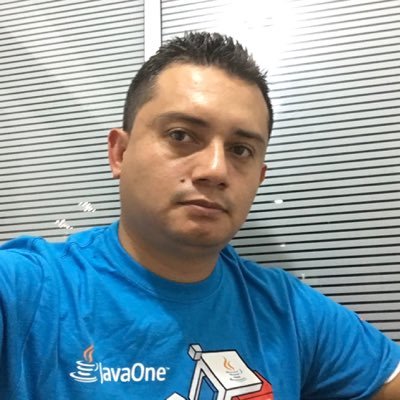
Java Champion, Oracle GroundBreaker Ambassador, System Engineer, Medellín JUG Leader, Duke’s Choice Award Winner, focusing on software development with Java Techs.
Heather VanCura
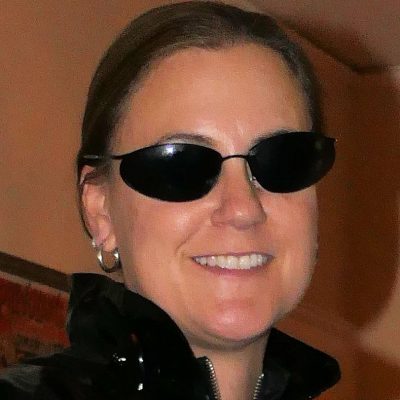
Heather leads the Java Community standardization efforts at Oracle, and is a leader of the global community driven adoption user group programs. She is Chairperson of the Java Community Process (JCP) program. In this role she drives the efforts to transform the JCP program and broaden participation and diversity in the community. She is passionate about Java, women in technology and developer communities, serving as an International speaker and community organizer of developer hack days around the world. She resides in the San Francisco Bay Area, California USA and enjoys trying new sports and fitness activities in her free time.
David Delabassée
DevRel Java Platform Group @ Oracle
Accessibility Activist
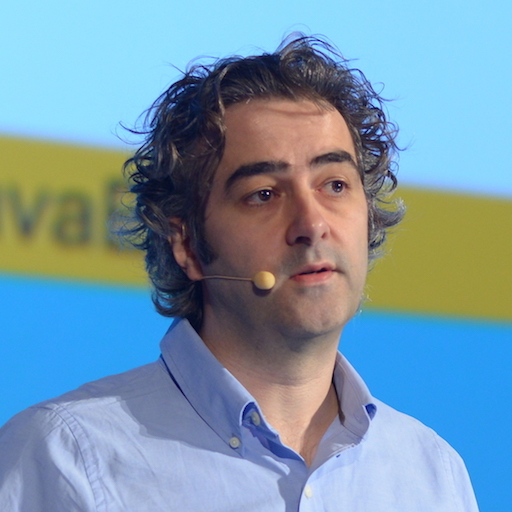
David is a Developer Advocate in the Java Platform Group at Oracle. Prior to that, he was involved in Oracle’s Serverless initiatives. David has also been heavily involved in Java EE 8 and its transition to the Eclipse Foundation as part of the Jakarta EE initiative.
Over the years, David has championed Java extensively throughout the world, by presenting at conferences and user groups, large and small. He blogs at delabassee.com and has authored many technical articles for various publications.
David lives in Belgium. In his spare time, he enjoys playing video games with his daughter and tinkering with technologies such as domotics, electronics, and pinballs.
You can follow him on Twitter @delabassee.
Ian Darwin
Java Champion
 Ian Darwin has worked in the computer field for ages, and has trained and mentored thousands of developers in the US, Canada, Europe and occasionally Asia. He’s the author of several works on Java including the O’Reilly Java Cookbook and Android Cookbook, and their video series on Testing Java. After teaching SCUBA diving and an undergraduate CS course on Unix, Software Tools and Programming at U of Toronto for several years, he settled on regularly teaching short computer courses with Learning Tree International. He’s also spoken at user groups and software conferences large and small, and was a Rock Star Speaker at JavaOne some years ago. Ian is the principal of Rejminet Group, a small software consultancy. Outside of computing he’s into electric vehicles, photography and 3D printing.
Ian Darwin has worked in the computer field for ages, and has trained and mentored thousands of developers in the US, Canada, Europe and occasionally Asia. He’s the author of several works on Java including the O’Reilly Java Cookbook and Android Cookbook, and their video series on Testing Java. After teaching SCUBA diving and an undergraduate CS course on Unix, Software Tools and Programming at U of Toronto for several years, he settled on regularly teaching short computer courses with Learning Tree International. He’s also spoken at user groups and software conferences large and small, and was a Rock Star Speaker at JavaOne some years ago. Ian is the principal of Rejminet Group, a small software consultancy. Outside of computing he’s into electric vehicles, photography and 3D printing.
Twitter: https://twitter.com/Ian_Darwin
Web site: https://darwinsys.com/java
Ryan Cuprak

Ryan Cuprak is an CPG & Retail, Formulation R&D Development Senior Manager at Dassault Systemes, co-author EJB in Action 2nd Edition from Manning and the NetBeans Certification Guide from McGrall-Hill. He is also president of the Connecticut Java Users Group since 2003. Ryan is a JavaOne Rockstar Presenter. At Dassault Systemes he works on the ENOVIA Enginuitychemical formulation software and is involved in desktop and backend server development as well as client data migrations. Prior to joining DS, Ryan worked for a distributed computing company, TurboWorx, and also Eastman Kodak’s Molecular imaging Systems group, now part of Burker. Ryan earned a BS in computer science and biology from Loyola University Chicago.
Kirk Pepperdine
Java Champion, JavaOne Rockstar
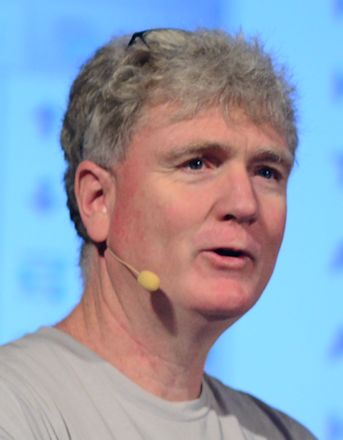
Kirk Pepperdine has been performance-tuning Java applications as an independent speaker and consultant for more than 20 years. He know works at Microsoft as a principle engineer after his startup, jClarity was acquired. Kirk was named a Java Champion in 2006, has been a JavaOne Rockstar numerous times, and can be found at Java User Groups and conferences worldwide. The author of the original Java performance-tuning workshop, Kirk continues to be an ardent supporter of the Java community as the co-founder of JCrete, a Java unconference, and helps to establish other unconferences across the globe.
Conference Organizer: Ken Fogel
Java Champion, JCP Executive Committee Member

Ken Fogel is a faculty member of the Computer Science Technology Program at Dawson College. He has spoken at Java One, now called Code One and Apache Con and participated in JCrete. This year he was elected to the Java Community Process Executive Committee. After his first two years speaking at Java One he decided to bring a little of his experiences at these conferences to Montreal and this led to DawsCon. Being a developer means a commitment to life long learning but not everyone can travel to conferences. DawsCon brings to Montreal some of the finest speakers in the world to a conference where admission is FREE!
For more information, contact us at dawscon@dawsoncollege.qc.ca.
Pour plus d’information, veuillez nous contacter au dawscon@dawsoncollege.qc.ca.
Registration / Inscription: https://www.eventbrite.com/e/dawscon-software-conference-tickets-71925935409
Dawson College is across the street from the Alexis Nihon Plaza where you will find a food court that caters to most tastes. Dawson is easy to get to as there is an entrance from the Atwater Metro station.
Le College Dawson se situe en face da la place Alexis Nihon, ou se trouvent des services de restaurations rapides de toute sortes. Il existe un entrée directe au collège depuis la station de métro Atwater.

Manning is an independent publisher of computer books for software developers, engineers, architects, system administrators, managers and all who are professionally involved with the computer business. The books we publish cover a huge range of topics that the modern developer needs; from languages and frameworks, to best practices for team leaders.


